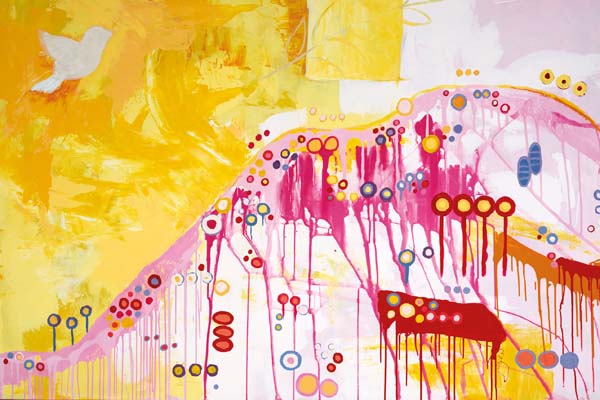Building bridges with the LGBT community
Sara Thompson
Public relations assistant
Avondale College of Higher Education
Cooranbong, New South Wales, Australia
What would you do if you discovered your three best friends were gay? How would you react? How are you supposed to react?

Andrew Marin, author of Love is an Orientation and founder of The Marin Foundation, speaks at 7.28.
Credit: Jordan Pearce
Andrew Marin, president and founder of The Marin Foundation, discussed this at a rainbow-themed 7.28 on Friday evening (March 15).
Andrew based his presentation, “Love is an orientation,” on the recounting of his own experiences living over the past 13 years in Boystown, the first officially gay district in the United States, just outside of Chicago.
Having grown up in what he calls a “white, straight, upperclass suburb,” Andrew led a self-described homophobic lifestyle while at university. This quickly changed when, in three consecutive months, three of his best friends came out. Andrew felt confused. The question that loomed large in his mind: How am I supposed to react?
“I didn’t know how to begin to wrap my nice, little, well-intentioned, small town, conservative head around what had just happened.
“They all told me what to believe, but not what to do,” he said, recounting the numerous pieces of advice he had received from Christians and non-Christians alike. “I didn’t care what I was supposed to believe; I just wanted my friends back.”
Andrew’s experiences led him to establish The Marin Foundation, a public charity that seeks to build bridges between the lesbian, gay, bisexual and transgender community and conservatives through biblical and social education and scientific research. The foundation has become widely known—Andrew has worked with the United Nations to advise its agencies on bridging opposing worldviews, civic engagement and theological aspects of reconciliation and has spoken to members of the United States Senate.
Friday’s presentatioon avoided the highly debated issue of homosexuality within the church and instead presented an alternative to mere belief systems—a call to love others as Jesus loved us, regardless of orientation. A reference to a Billy Graham quote summarised it well: “It’s the Holy Spirit’s job to convict, God’s job to convict, and my job to love.”
The presentation is timely. The Australian premiere of Seventh-Gay Adventists, a documentary about three couples who are reconciling their homosexuality and their faith as Seventh-day Adventists, took place at the Melbourne Queer Film Festival earlier this week.
Andrew concluded his presentation with a brief outdoor ceremony, where members of the audience were each given balloons to which they metaphorically attached their worries before setting them loose in the Brandstater Amphitheatre.
 Avondale College of Higher Education
Avondale College of Higher Education

